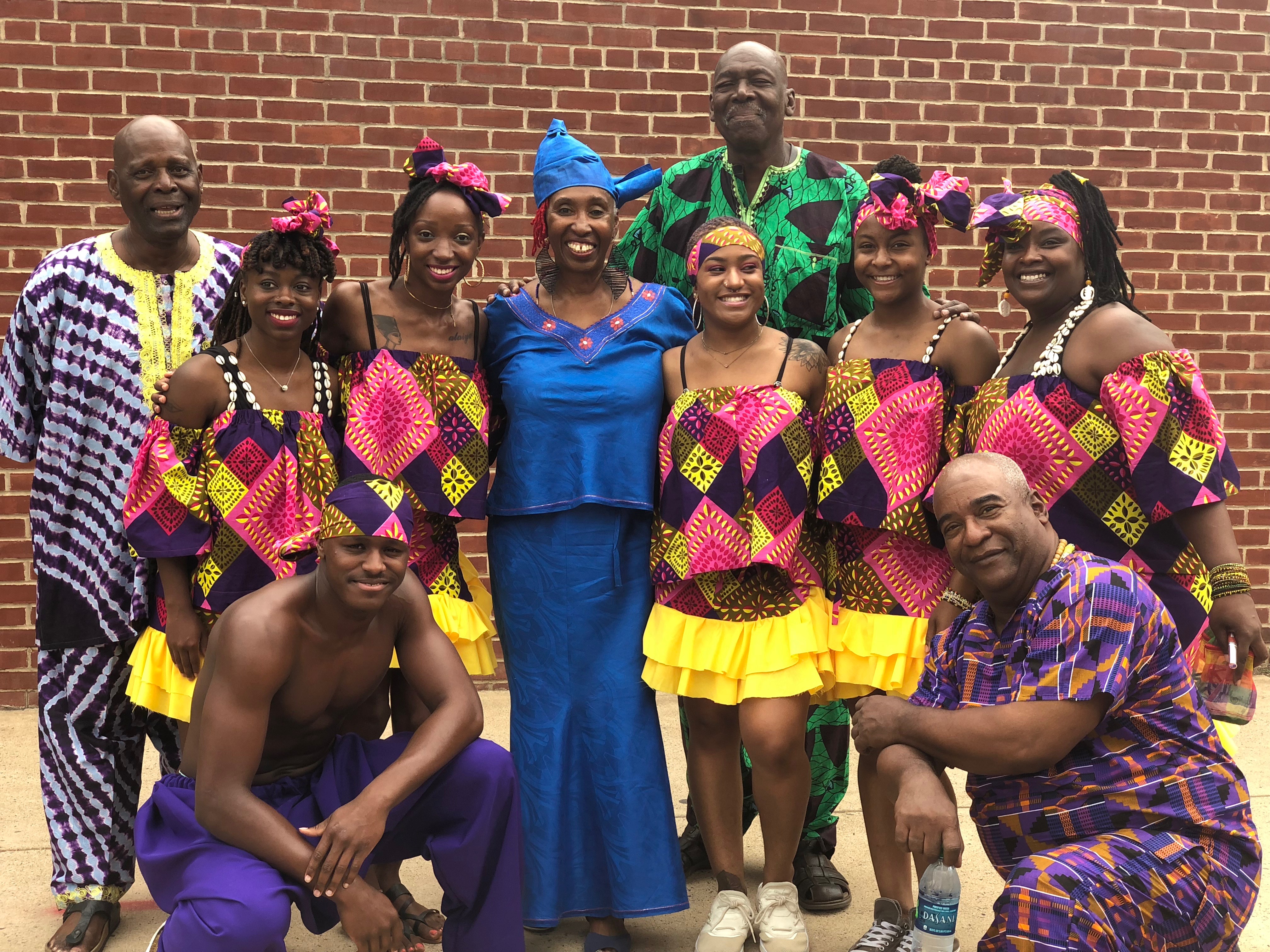
Our mission is to represent West African and Cuban culture at the highest level of artistic excellence through the preservation and presentation of traditional dancing as well as masquerade, music, and storytelling. We seek to expand the cultural awareness of African contributions to the arts through educational programs and performances that highlight the social and ritualistic customs of the people of the African Diaspora.
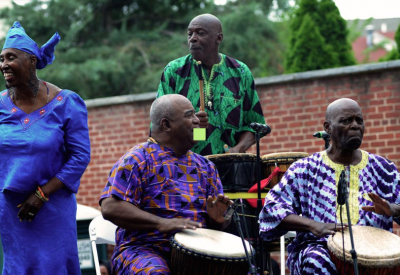
Dance and Drum Ensemble
Troupe Da-Da’s repertoire includes a variety of traditional West African and Afro-Cuban dances. Dressed in colorful, authentic costumes and singing in traditional African languages, the dancers of Troupe Da-Da move gracefully to the powerful rhythms of the Djembe, Dundun, Conga and Bata drums. Troupe Da-Da also plays a number of African percussion instruments such as the Sekere, Log Drums and the Talking drums from Nigeria. This is all on display at our performances and African dance classes.
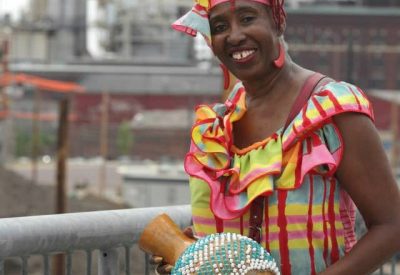
Philly African Dance
African dance has been a staple in Philadelphia dance since the 1970’s by way of legendary choreographer and dancer Arthur Hall, who founded the Arthur Hall Afro-American Dance Ensemble. Oyin Hardy, a native Philadelphian, has represented the African dance culture in her beloved city for over 30 years. And, through the passion and joy Oyin embodies, Troupe Da Da African Dance and Drum Ensemble was formed in 1992. Troupe Da Da is set to continue the excellence of Philly African Dance for many years to come.
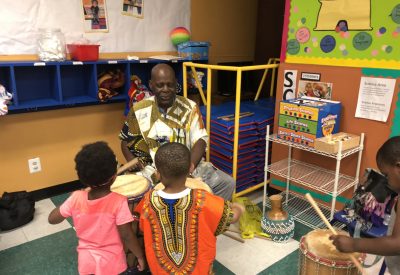
Children’s Programs
Troupe Da-Da African Dance and Drum Ensemble always take the children dancers on an amazing journey through West Africa. The cultures of Mali, Guinea, Ivory Coast, and more, are visited accompanied by drummers and dancers. The children thoroughly enjoy the steps to the to the dances that coincide with each region. The children’s final performance of what is learned is loved by all! The children loved the Philly Phanatic at one of our youth programs!
West Africa and Afro-Cuban Culture
When you are looking to understand a culture, it is important to not only look at their history but get a sense of the customs that are consistently passed down. Two very important cultures to consider are West Africa and Afro-Cuban culture. The people in these cultures have had a huge influence on art and music, which is why West African and Afro-Cuban dances have been a rich staple in a variety of cultures.
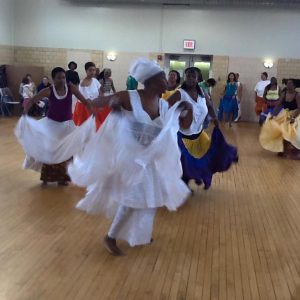
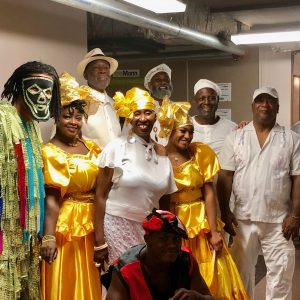
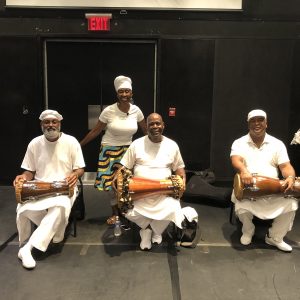
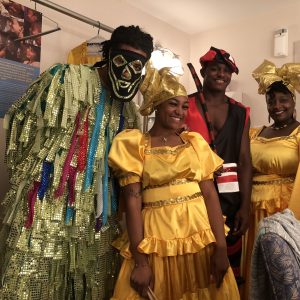
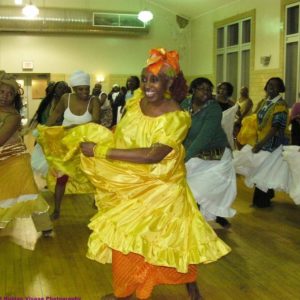
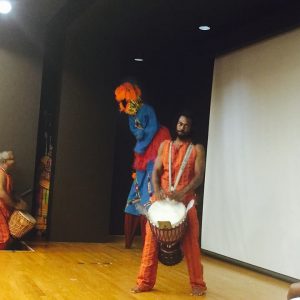
Afro Cuban Dance
When studying Afro Cuban dance, it is important to realize that the culture and dance are heavily influenced by Africa. The Afro Cuban population came about due to the African diaspora when West Africans were taken from their home and delivered to Cuba. These Africans brought a lot of their customs, culture, and way of life with them. As a result, the dances in Cuba heavily resemble West African dances. Many of these dances stemmed from religious practices, though some are secular.
African Dancing and Singing at The Mann Center in Philadelphia
Troupe Da Da took its entertaining performance to the stage of the Mann Center in Philly which was an enormous hit to all.
The Mann Center for the Performing Arts (formerly known as the Mann Music Center) is a nonprofit performing arts center located in the Centennial District of Philadelphia.
The Philadelphia ODUNDE Festival
Philly African Dance at the Odunde Festival
Troupe Da Da, by way of Oyin Hardy and Philly African Dance, has been a part of the amazing ODUNDE celebration in Philadelphia for over 30 years. They have danced, sang, smiled and sharing their passion for West African Dance to the City of Philadelphia.
Afro Cuban Dance Forms
By taking a look at these different forms of dance, it is clear that West Africa has influenced Cuban culture. These dances hold secrets and influence that tell the story of the African slave trade and the rich tradition that has been passed down by people for generations.
Stilt Walking at the William Allen School, Moorestown, NJ
2018
Deeply rooted in African tribal culture, the masked dancer on stilts, called masquerade, performs traditional and acrobatic ballet style of stilt-walking from the region of West Africa consisting of Guinea, Liberia and the Ivory Coast. The masquerade, or ‘Tall Spirit’, acts as the spiritual authority of the village and community and, along with the music accompaniment, comes to bring good luck, peace, prosperity and balance in all of nature.
African Dance in the School Systems
African Dance in the School System 2018
Since 1999, Troupe Da Da has been introducing the rhythms and moves of African dance and drumming into public and private school systems, imparting not just the dance but its cultural roots as well.

